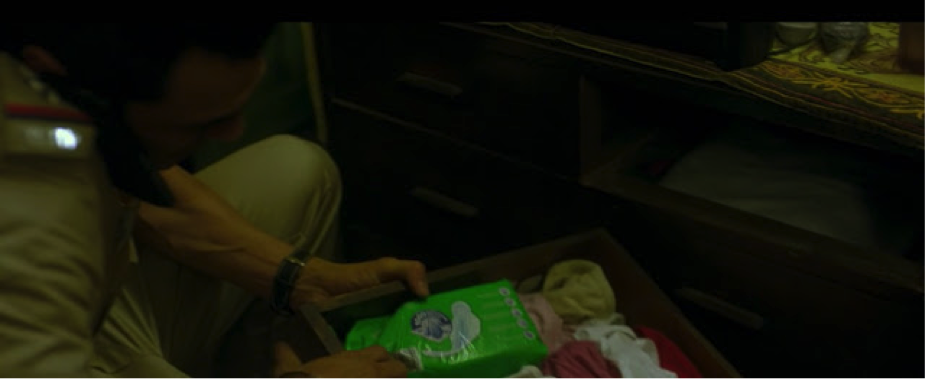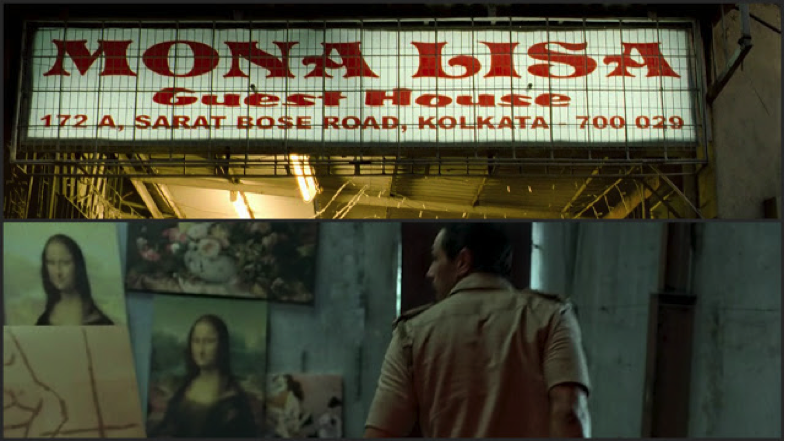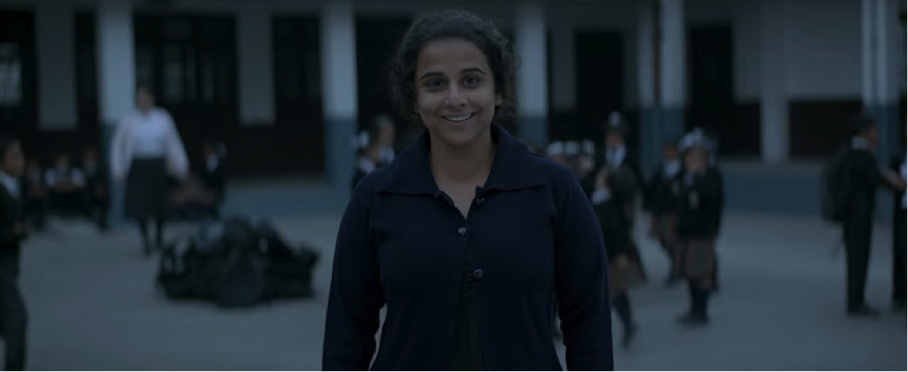Sujoy Ghosh’s Kahaani 2: Durga Rani Singh is the second film in the series of women-oriented films that he plans to make, hence, the added ‘2’ in the title. The first film Kahaani was a brilliant film, still considered to be one of the finest films in the last decade. It was about a pregnant Vidya Bagchi looking for her husband, but it is found out that she was not who she said she was. Kahaani 2 is also about another Vidya (Vidya Balan) and her daughter Minnie (Tunisha Sharma) who live in Chandan Nagar in West Bengal. Minnie cannot walk. The story takes a turn when Minnie is kidnapped, and Vidya has an accident. Inderjeet Singh (Arjun Rampal) is the policeman assigned to the case, and when he sees Vidya, he realizes she is Durga, a criminal wanted for kidnapping and murder.

Kahaani 2, essentially, follows the same contours as that of Kahaani. The film has the same broad template as that of the earlier film. A woman makes up a kahaani about herself, pretends to be someone else, and manages to game the system. In both the films, her assumed new name is Vidya. She has a sympathetic cop who helps her in her mission. She is compared to Durga in both the films. In Kahaani, Vidya kills the evil man who was responsible for her husband’s death on the occasion of Durga Puja, a festival that celebrates the victory of Durga over the evil Mahishasura. In Kahaani 2, her real name is Durga Rani Singh, and she is tackling the social evil of child abuse. The two films have some characters who are played by the same actors, such as the Bengali head cop.
The films also have similar scene structures. For instance, in Kahaani, there was an unexpected scene where Vidya was almost killed by being pushed in front of the metro train. Here also, there is a similar scene where she comes in front of a taxi. There was an unassuming serial-killer man in Kahaani. Likewise, there is a serial-killer woman who murders people using a blade. The films have the milieu and the ambiance of Bengal. In another little detail, we saw that in Kahaani, Vidya stays at Mona Lisa lodge. The man who was the manager of the lodge becomes an assistant cop in Kahaani 2. At some point in Kahaani 2, when Inderjeet is running after Goopi, we see something related to Mona Lisa in this film as well. There are replicas of Mona Lisa which Goopi makes to sell them to others. In Kahaani, Satyaki visits a school, and he sees that the children’s school shirt has a swan on it. In Kahaani 2, Mohit uses origami to make swan-like/bird-like figures. Thus, the two films are connected but don’t necessarily have any relation in terms of the story.

Kahaani 2 is about Durga. She is a strong woman, who is living life on her own. She writes in her diary that she likes Arun. At some point in the film, Arun shows her a scene of Vidya Sinha from her movie Rajnigandha. Durga adopts Vidya Sinha’s name as her own to escape from the Dewans. Released in 1974 and directed by Basu Chatterjee, Rajnigandha is about Deepa, played by Vidya Sinha, who is conflicted between choosing her fiancé and her old boyfriend. The important thing about the film is that it is about whom Deepa chooses. She is not dependent on anyone and makes her decision on what she feels. It was a film that advocated a woman’s choice. In addition, Rajanigandha was one of the few films, at that time, that showed an ordinary middle-class woman going out for work. As Trisha Gupta writes, “Vidya Sinha made her office-going seem so natural that I have never really paused earlier to think about how remarkable it actually was. In Bombay cinema, too, the office-going women of ’70s films, from Vidya Sinha in Chatterjee’s own Rajnigandha (1974), to Zarina Wahab in Gharonda (1977), or Ranjeeta in Pati Patni Aur Woh (1978), were still a huge exception.” It is in this context that Rajnigandha and Vidya Sinha are portrayed in Kahaani 2. Durga, too, has a normal office job and works as a receptionist in a school. Later, she finds a job in another office in Kolkata. Also, Durga, like Vidya Sinha’s character Deepa, has to make a decision between two choices. She says, “Mujhe kisi ek ko chunana tha, aur maine Minnie ko chuna.” She could have gone away to London, but she chose to stay with Minnie. She makes this decision completely of her own volition.
The film shows some other aspects of a woman’s choice. Kahaani 2 showed the women leading the charge in having sex. It is Durga who calls Arun to her place where they have sex. Also, it is Rashmi, Inderjeet’s wife, who subtly hints to her husband for sex. It is important to point out another detail. At an early stage in the film, Inderjeet visits Vidya’s house and goes through her stuff. What was particularly striking was that we could clearly see the sanitary pads in the drawer. It is an exception to see a sanitary napkin in a Hindi film, where it is still considered a taboo to talk about them. But the film does not shy away from showing them; in fact, the same scene is shown in the trailer, too. Thus, all the above points are relevant as the film tries to portray the daily life of a woman, dealing with unusual circumstances.

In 1983, a nine-year-old kid singing Lakdi Ki Kaathi in a film called Masoom won everyone’s hearts. The kid, named Rahul, was played by Jugal Hansraj. In Kahaani 2, the same Jugal Hansraj plays a creepy man named Mohit Dewan who sexually abuses his niece. In casting him, the film tries to play with the audience and makes a chilling statement that someone who looks masoom can turn out to be an evil monster. In fact, at quite a few times, the film shows how people condone crimes based on appearances (shakal dekh ke lagta hai). Child sexual abuse studies have shown that in a significantly high percentage of cases, the abuser is usually a family member or someone known to the child.
There is a particularly chilling scene where Mohit makes an origami item in front of Durga, as if this crushing and manipulation of paper are what he does this to his victims, too. The film portrays child abuse in a sensitive manner, and in a way, is educating the viewer. It is important to become a child’s friend, then, only she can be free to talk. It is not a good idea to impose one’s choices on children, and it is better that they make their own choices. It is in patterns that children bring out their issues, and it is important to have a conversation with them about somebody touching their private parts. It is also necessary for parents to not trust anyone blindly. For instance, at a particular stage, Inderjeet kept looking at the man who used to take his daughter to school, and the man started avoiding looking into Inderjeet’s eyes, as if he has a guilty conscience. Perhaps, that man was hiding something.

Kahaani 2 gives a little quirkiness to all its characters, ranging from the hospital patient to the criminal making fake passports. Early in the film, there is a disheveled man who collects plastic waste, and we see he holds a bottle of toilet cleaner. He will be the one who will have Vidya’s phone. The creepy Mohit likes to make origami items. The serial killer uses a blade to murder people. Inderjeet’s wife, Rashmi, does some superstitious trick before her husband leaves the house. The board carrying the name of the clinic where Vidya is admitted is always flickering. This occurs another time when Mohit has kidnapped Minnie, and the bulb starts flickering.
In addition to this quirkiness, Kahaani 2 uses old Hindi and Bengali songs throughout the film. In the first scene of the film, Yeh Raatein Nayi Purani from Julie can be heard, as if like Julie, Kahaani 2 is about an unwed single mother. At some other point, Aya Sanam Aya Deewana Tera from Bade Dil Wala can be heard when Inderjeet is riding a bike to find someone. At another stage, Chhoti Si Kahaani Se from Ijaazat plays when Rashmi is asking Inderjeet about his ex-wife, something that happened in Ijaazat, too. There are a lot of other songs, including some in Bengali. Some of them appear to have a specific context, while others give something to think about its purpose.

Kahaani 2 has a terrific first-half, where it builds a fantastic thriller narrative, with a brilliant performance by Vidya Balan. However, I was left a little underwhelmed about its ending, as it became quite predictable. There is a running gag in the film where Inderjeet is often mocked for trusting his gut feeling. He did not get a promotion because he believed in it. He always believed in it. Eventually, his gut feeling turned out to be true. I kept thinking if that was also what the film trying to do with us—to trust our gut feeling, which we are hesitant to do so. After all, our gut feeling about the film’s suspense came about to be true, too.
[To read more of the author’s work, log onto his blog here]






Leave A Comment
You must be logged in to post a comment.